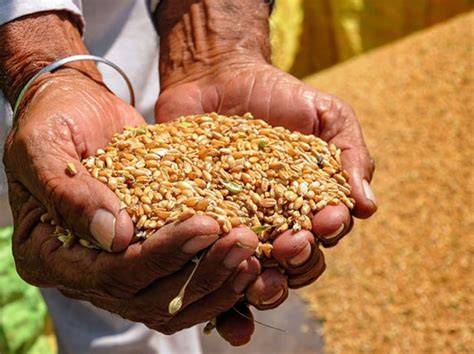Achieving food security requires several critical factors, with quality and accessible seeds at its core. For millions of small-scale farmers in Ghana, high-quality, disease-resistant seeds can mean the difference between a sufficient harvest and one that barely meets their needs. With 52% of the country’s 34.12 million population relying on agriculture for sustenance and income, access to certified seeds is vital. However, logistical issues, lack of information, and inadequate funding often force farmers to rely on low-quality seeds, leading to reduced productivity and perpetuating food insecurity. According to the Food and Agricultural Organization (FAO), 39.4% of Ghanaians—approximately 12.9 million people—faced moderate to severe food insecurity in 2022.
To address this, the National Seed Trade Association of Ghana (NASTAG), with support from AGRA, has launched initiatives like the Seed and Inputs Fair. This program, part of the “Strengthening the Ghana Seed System to Enhance Quality Seed Delivery to Farmers†project under the Partnership for Inclusive Agricultural Transformation in Africa (PIATA), demonstrates how partnerships can improve seed quality and distribution, benefiting farmers.
Ghana can also learn from its neighbors, such as Nigeria and Ethiopia, which have reformed their seed systems. Nigeria established a National Seed Council to accredit seeds and mobilize private investment. Through an E-wallet system, the government subsidized seeds and used mobile technology to ensure farmers accessed certified seeds. Ethiopia improved its seed system by forming Seed Growers’ Associations, which train and accredit seed producers, promoting community-led production and distribution in rural areas. These models highlight practical strategies Ghana could adopt.
Ghana’s seed sector has seen notable progress in the last six years, largely driven by initiatives like the government’s Planting for Food and Jobs program. Certified seed production has significantly increased, boosting maize and soybean yields by up to 50%. This momentum could lead to the production of 400,000 additional tons of maize annually if certified seeds were widely available.
Empowering women and youth is also crucial. Women form over 50% of Ghana’s agricultural workforce but face barriers in accessing resources like land, credit, and quality seeds. Programs like the Seed and Inputs Fair provide opportunities for women to access certified seeds, technology, and training, though more needs to be done to ensure gender equity in agriculture. Targeted subsidies, training, and group-based initiatives could build resilience, increase productivity, and enhance food security by up to 150%.



